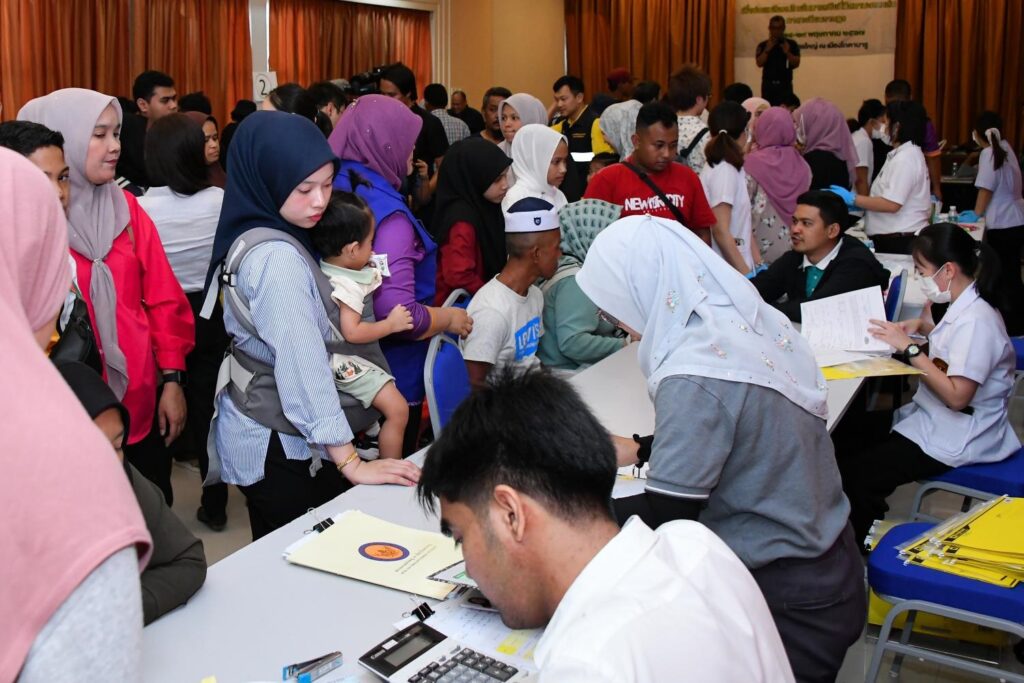Thai authorities are offering displaced people the opportunity to obtain Thai citizenship by undergoing a genetic test to prove Thai ancestry.
The Ministry of Foreign Affairs has joined forces with the Ministry of Justice to continue genetic testing for likely displaced Thai nationals in the Malaysian border town of Kota Bharu.
The Consulate General of the Kingdom of Thailand supports the project in Kota Bharu, the Southern Border Provinces Administrative Centre and the Central Institute of Forensic Medicine of Thailand, Hatayai Focus reported.
The project aims to confirm and grant Thai citizenship to displaced people without Thai citizenship status so they can get their first Thai identification cards, said Natapol Khanthahiran, deputy permanent secretary at the Ministry of Foreign Affairs.
Phasit Chudabuddhi, consul general in Kota Bharu, said the project has been ongoing since 2017, despite being suspended in 2020-2022 due to Kovid-19. Phasit noted that the number of participants has been increasing yearly, from 74 in the first year to 90 in 2018, 92 in 2019, 97 in 2023 and 235 this year.
The project resumed in 2023 after a three-year hiatus with 97 people taking part in the DNA test, and the government was able to issue 89 birth certificates and 70 identity cards at the One-Stop Service Centre in Kolok district in Narathiwat.
"The increase in the number of participants is a testament to the project's success, as well as the positive feedback from people who cried tears of happiness when they received their first Thai identity cards. They were accepted as Thai citizens,' Phasit added.These people are also entitled to other benefits, including enrolment in formal education and access to employment opportunities. In addition, the project has helped them access medical treatment supported by the National Health Authority.
“The project is designed to help people improve their well-being.
People should get their due rights,’ Phasit said.
Justice Secretary Kukheng Yawohasun wanted to invite the Ministry of Social Development and Human Security to join the project because the participants include children and pregnant women who need the ministry’s support.
'We are trying to find a solution to the unrest in the Deep South, and we believe that issuing ID cards to those who are displaced and living in a border town in a neighbouring country is one of the best solutions to combat conflicts in the southern provinces,' said Kuheng.Worawi Chaiwut, deputy director of the Central Institute of Forensic Medicine, said the project is expected to be completed within five years. The institute is trying to screen stateless people in Thailand and Malaysia. About 990,000 stateless people in Thailand need to undergo DNA testing.
Sommai Boonkliang, assistant secretary of the Southern Border Provinces Administrative Centre, said the centre had interviewed some people who had received identity cards, and many said it was as if they had a new life.
Worawut Phonprapapan, director general of the Department of Consular Affairs, said that while the project has been successful, some amendments to the law are needed to smooth over any attempts to sell ID cards.
A participant in the project, who identified herself as Rosmi, said she was pleased to see the project come to town, as the DNA testing project helped her obtain citizenship for her second child without charging a fee. According to Rosmi, the woman spent at least 8,000 baht for a similar procedure for her first child in Thailand.

More Articles Here
More Articles Here










